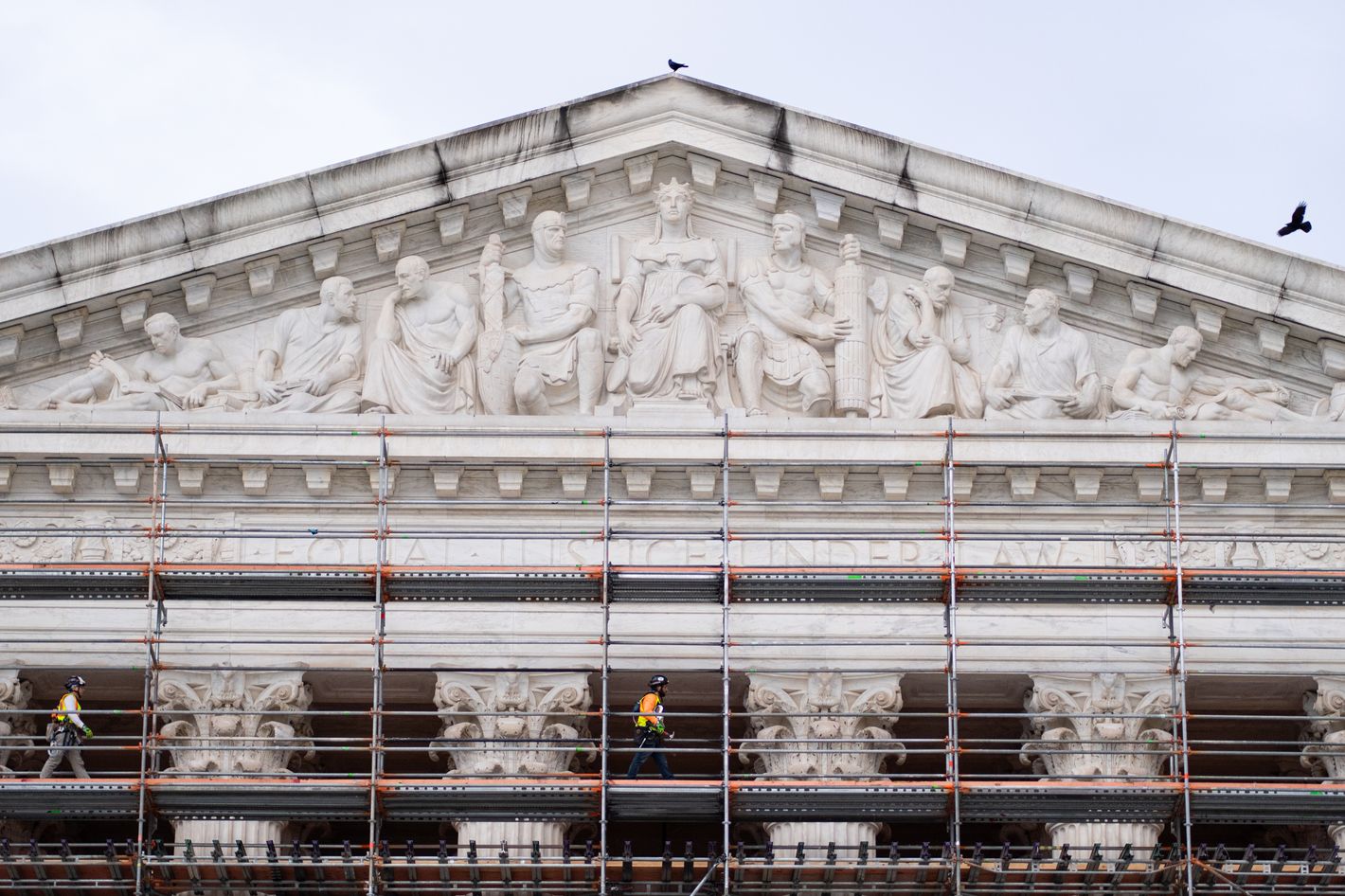Photo: Bill Clark/CQ-Roll Call/Getty Images
In public Republicans tend to echo Team Trump’s invective toward “radical Left activist” judges who dare to question the 47th president’s efforts to massively expand his own powers. But despite the lusty cheerleading for Trump’s authoritarian tendencies, you have to figure that privately many Republicans hope the federal courts rein in some of this administration’s worst excesses. That is particularly true with respect to the front-and-center Trump agenda item that most violently departs from orthodox conservative doctrine: his unilateral and wildly erratic imposition of tariffs. Could the U.S. Supreme Court do what GOP politicians fear to do but would love to see done?
It’s entirely possible, as Ankush Khardori explains at Politico in a review of the common strands of the four separate lawsuits challenging Trump’s tariff extravaganza:
The legal case against the tariffs is straightforward. The plaintiffs in the four cases to date frame their complaints slightly differently, but they generally boil down to a handful of arguments.
First, the Constitution gives Congress the authority to tax and impose tariffs. Congress has delegated that authority to the executive branch in a handful of trade laws passed over the course of the last century, but the president’s power in this area is a function of the particular language contained in those statutes. (The likely reason that Trump invoked IEEPA [the International Economic Emergency Powers Act] is that, unlike the more commonly invoked trade laws, IEEPA does not require administrative investigations or consultations with Congress.) […]
Second, the relevant provision of the IEEPA contains a bunch of words, but none of those words are “tariffs” or “taxes” …
Third, even if the IEEPA granted the president the authority to impose tariffs, there are no actual “emergencies” here that would support them.
The conservative judicial case that Trump has exceeded his authority in imposing tariffs relies on some of same reasoning that led the Supreme Court to limit the power of Congress to delegate authority to federal agencies. Last year’s landmark Supreme Court decision abolishing so-called Chevron deference to agency interpretations of federal law, which conservatives cheered, might suggest equivalent limitations on congressional delegations of tariff authority to the president. Similarly, the Court’s 2023 death blow to part of Joe Biden’s student-loan-forgiveness plan because it wasn’t based on a clear economic or political rationale might also be applied to Trump’s tariffs. It’s possible the current Trump-friendly majority on the Court will apply a sauce-for-the-geese, sauce-for-the-gander approach, while reminding Republicans that allowing executive overreach for Trump will give future Democratic presidents more power as well.
Finding a way to curb Trump’s trade war without arousing his wrath will probably become an obsession for Republicans convinced that it will blow up the economy and/or infuriate 2024 Trump voters who expected him to make consumer-price-restraint job No. 1 in 2025. Obviously federal judges can’t be fired like executive-branch officials or primaried like members of Congress, and judicial impeachments are impracticable so long as there are 41 Democratic senators who can block them. Trump will undoubtedly rant and rave about adverse court decisions, particularly if the ingrates he has appointed to life-time terms cooperate in thwarting his more imperial aspirations. But short of a full-on assault on judicial review, which might be so terrifying as to rouse some Republicans to open dissent, there’s probably not much the administration can do about it.
While tariffs are probably the most urgent avenue for judicial restraint of Trump 2.0 from the point of view of Republican politicians, they obviously matter in other areas as well. If, for example, the courts succeed in getting a grip on lawless ICE operations, the administration will need either to slow down the mass-deportation project or secure even larger resources from Congress in order to conduct it in an orderly manner. But speaking of Congress, if the courts stop DOGE and OMB from tearing up the federal bureaucracy by fiat, Republican lawmakers will have to step up and take the heat for unpopular and economically counterproductive budget cuts and mass layoffs. So judicial intervention to keep Trump from becoming the king he imagines himself would be a mixed blessing for his less-than-courageous vassals.

